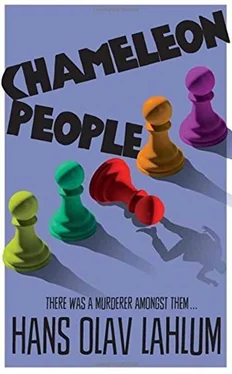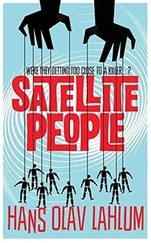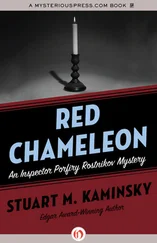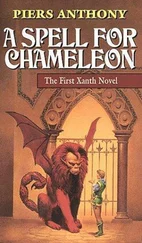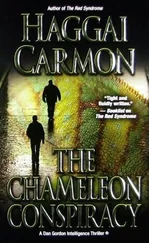I immediately asked why he had gone to her room and what had happened there.
‘It is not a very honourable story. Eva was very beautiful and charming. I was – like all the young men who met her – very attracted to her. I have to admit that I went to Oslo because I hoped a romance might blossom, and I did not want to take the chance that the other two might get in there before me. Earlier in the day, Eva had behaved in a way that gave me reason to believe that this hope might become a reality. She avoided her boyfriend, and was exceedingly friendly towards me. I should have realized that that was just how she was: Eva was a flirt who liked to play different men off against each other. And I made a genuine mistake. I knocked on her door at five past six to offer her my love. I left the room at a quarter past six crestfallen at having been rejected. She turned me down in her characteristically charming way: “Maybe sometime, who knew what the future might hold…” but the reality was clear. At one point I tried to put my arm around her and with a scornful smile she shook her head and took a step back. I left without accomplishing my mission. I don’t remember the glass, but it is not unthinkable that I took it with me by mistake in my heartbreak. I was truly nervous that day.’
Kjell Arne Ramdal did not, however, look nervous today. He finished there.
I didn’t know what more to say. His version was consistent and plausible. And I was not able to check there and then whether it was true.
I asked if the bed was still made when he left the room. He nodded quickly.
‘The bed was made up and untouched when I came and when I left. It’s fair to say that I had hoped it would not be when I left. But, all the same, it was very definitely made up. I came out with my trousers between my legs, as we say in Vestfold.’
It was the closest thing to humour I had ever heard from Kjell Arne Ramdal. But the mood was too sombre for either of us to smile. We were caught in a frustrating situation. I could not prove that the bed was not still made up when he left the room and he could not prove that it was.
In all honesty, I believed that the bed was still untouched and that Eva Bjølhaugen had been alive when he left. And that left an hour and a half afterwards where anything could have happened. Including the possibility that Kjell Arne Ramdal went back and killed Eva Bjølhaugen having built up a jealous rage; a motive which he had just given me himself.
I said that we also had indications that Per Johan Fredriksen had suspected Hauk Rebne Westgaard, and asked Kjell Arne Ramdal if he knew anything about that.
He nodded quickly and once again spoke briskly. ‘The extent to which that is true, I am not able to say, but that suspicion was very definitely the case at one point. There is a bit of a history there that I should probably tell you, though I do not like to spread rumours about other people and things that are none of my business…’
He gave me a questioning look. I said that he should certainly tell me everything that might be relevant to the sequence of events and motives.
He nodded again, almost gratefully, and carried on talking with renewed vigour.
‘In that case, the situation was that Eva was beautiful, charming, flirtatious and possibly slightly power-crazy. She loved being the centre of attention. Per Johan Fredriksen had had a brief romance with her the year before, which lasted about a month. After a few drinks, he confided in me that he, despite several attempts, had never managed to take off so much as her blouse, let alone her underwear. Behind her flirtatious front, she was pretty demanding and prudish, he said. She was a woman who often said A without wanting to do B. One day she broke it off and told him that he was not going to get what he wanted so badly, at least not for now. It was a humiliating defeat for him and he was visibly jealous of his childhood friend when she started to go out with Hauk Rebne Westgaard instead. But Fredriksen was not convinced that Westgaard had achieved what he so badly wanted either – even after they had been together for a few months. So, between the two of them, there was a lot of competition and a lot of emotion. Westgaard also had a slight inferiority complex in relation to us: his father was half crazy, their farm was smaller than ours and he had less money. So if Eva treated him badly, or if he believed he was about to lose her to one of us, it is easy to imagine that he might have killed her in a fit of rage. Eva was a girl who played with fire. She could have burnt herself on Hauk Rebne Westgaard. But I have absolutely no idea if that is what happened.’
And I certainly did not either. The only thing I felt fairly certain about was that I still had no grounds to arrest any of the suspects for anything.
I said to Kjell Arne Ramdal that it would have made things a little easier if he had told me all this the day before yesterday. He moved his head in a way that, with a bit of goodwill, could be interpreted as a nod. Then I asked if he had anything to add today and he replied succinctly: ‘No.’
His answer was the same when I asked if he had been in direct contact with Vera Fredriksen at any point after her father’s death. So the question as to who Vera had called remained unanswered.
I thanked him equally succinctly, then, taking these new thoughts with me, I headed for the door.
I had that feeling of general unease when I got back to the station at twenty past four. Things were relatively calm there, though the switchboard had experienced an increase in calls from the media. I prepared a new press release which confirmed that the woman found dead in Ullern was Fredriksen’s youngest daughter and that any possible connections were now being investigated, but that no further comment could be made in light of the ongoing investigation.
My boss waved me into his office before I was even at the door. He listened attentively to what I had to tell him, and seemed almost relieved that nothing new had emerged regarding the espionage aspect of the case.
He had given considerable thought to the case and concluded that the investigation should of course continue, but as discreetly as possible for the moment in order not to attract public attention until it was strictly necessary.
In short, the conclusion was that I should continue to work on the case and would get whatever help I needed, but that I should report directly to my boss and not tell Danielsen anything about the possible spy implications.
It seemed that my boss was having second thoughts about our meeting with Asle Bryne at Victoria Terrace. He was unusually sombre and said twice that this was a very sensitive case and that I must not betray his trust, now that it was so important. I promised to do my utmost not to do this.
I made four telephone calls before I left work.
I reached Miriam at the party office and told her that I would have to work late with the murder investigation, but that we could meet around half past eight. She was very understanding and did not ask for any details – even though I could hear in her voice that she was dying to know more.
Then I rang Patricia and asked if we could meet sometime around seven o’clock. She replied positively to this and then hung up without wasting any more of her time or mine.
I still had two hours until I was due to meet Patricia so I called Fredriksen’s mistress in Majorstuen, and then his son at Sognsvann.
The door was opened as soon as I rang on the bell at 53B Jacob Aall’s Street in Majorstuen. The woman who answered the door no longer had tears in her eyes, but she still had red cheeks and was wearing a black mourning dress. The photograph of Per Johan Fredriksen remained on the coffee table, with a lone candle burning beside it.
Читать дальше
